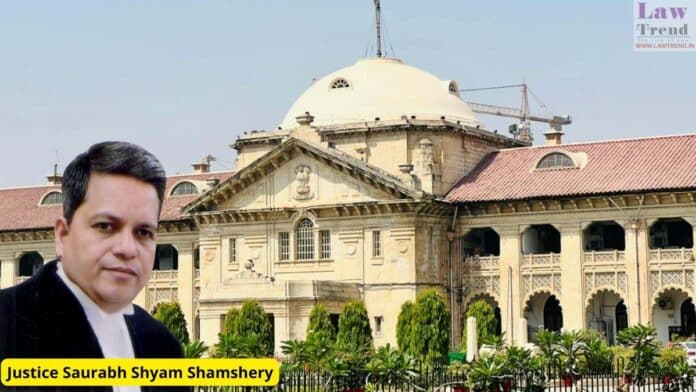In a recent judgment, the Allahabad High Court, presided over by Justice Saurabh Shyam Shamshery, dismissed an application under Section 482 of the CrPC seeking to quash a charge-sheet and summoning order related to a dowry death case. The case, numbered 13307 of 2020, involves allegations against Mritunjay Tiwari and six others, who are accused
To Read More Please Subscribe to VIP Membership for Unlimited Access to All the Articles, Download Available Copies of Judgments/Order, Acess to Central/State Bare Acts, Advertisement Free Content, Access to More than 4000 Legal Drafts( Readymade Editable Formats of Suits, Petitions, Writs, Legal Notices, Divorce Petitions, 138 Notices, Bail Applications etc.) in Hindi and English.




